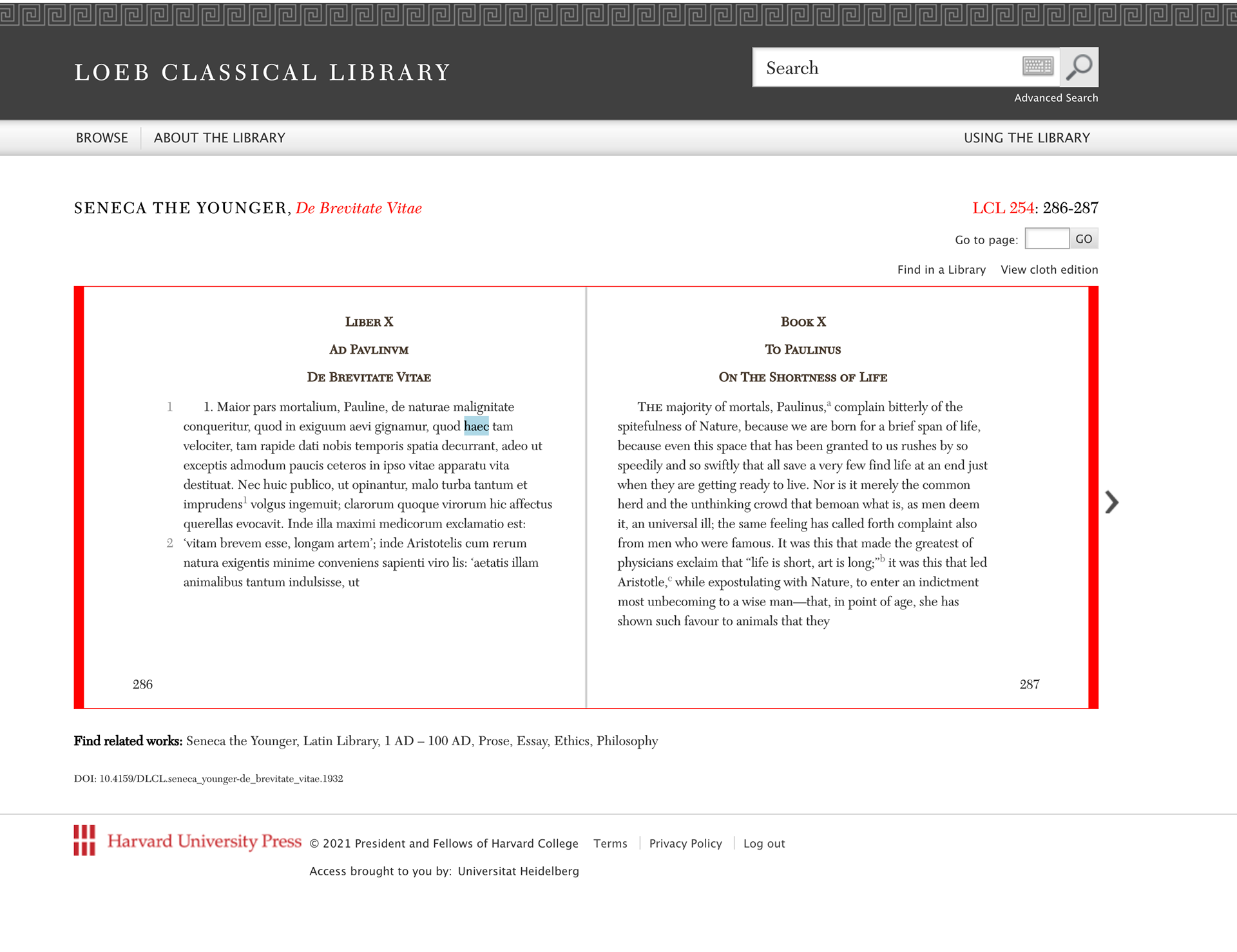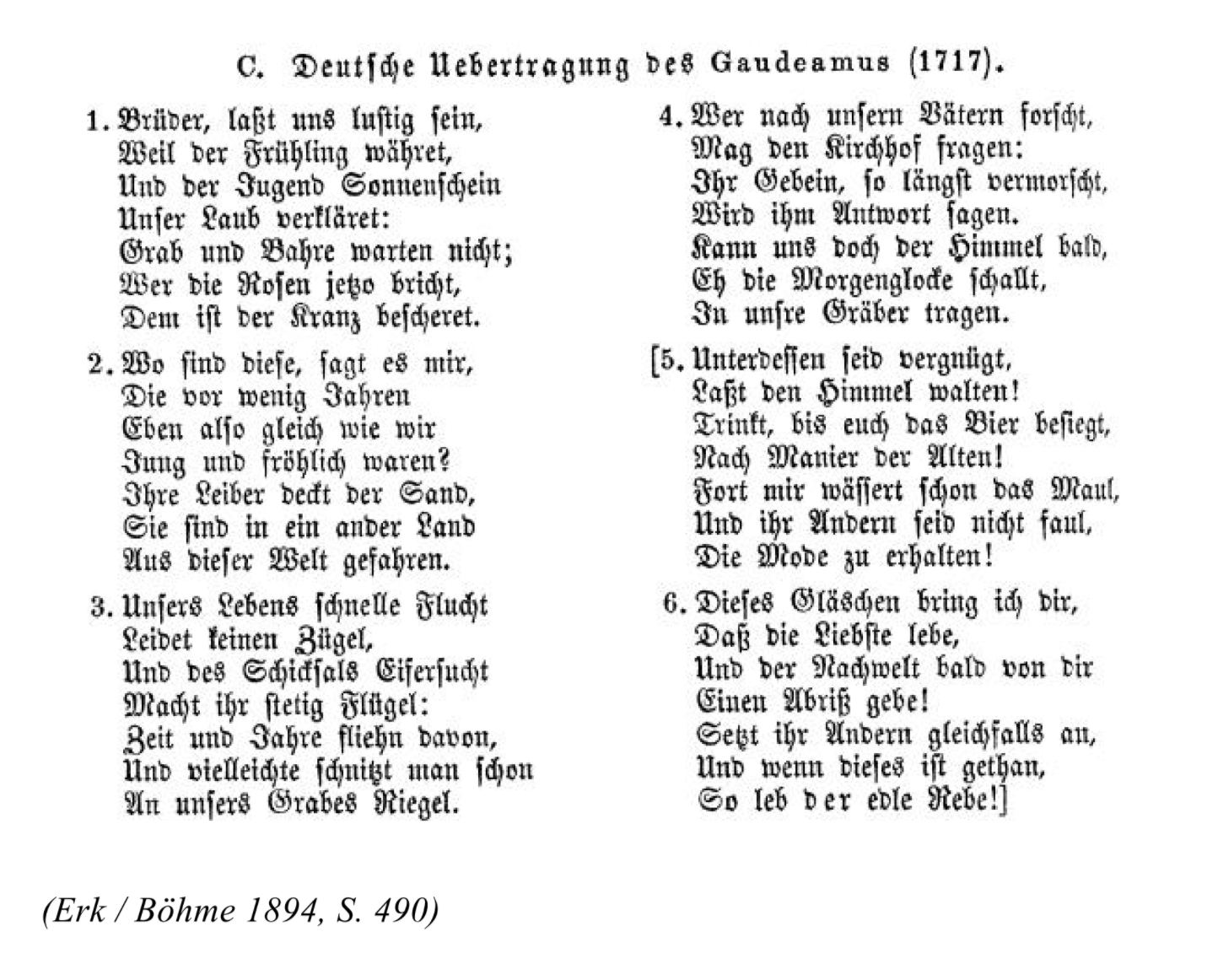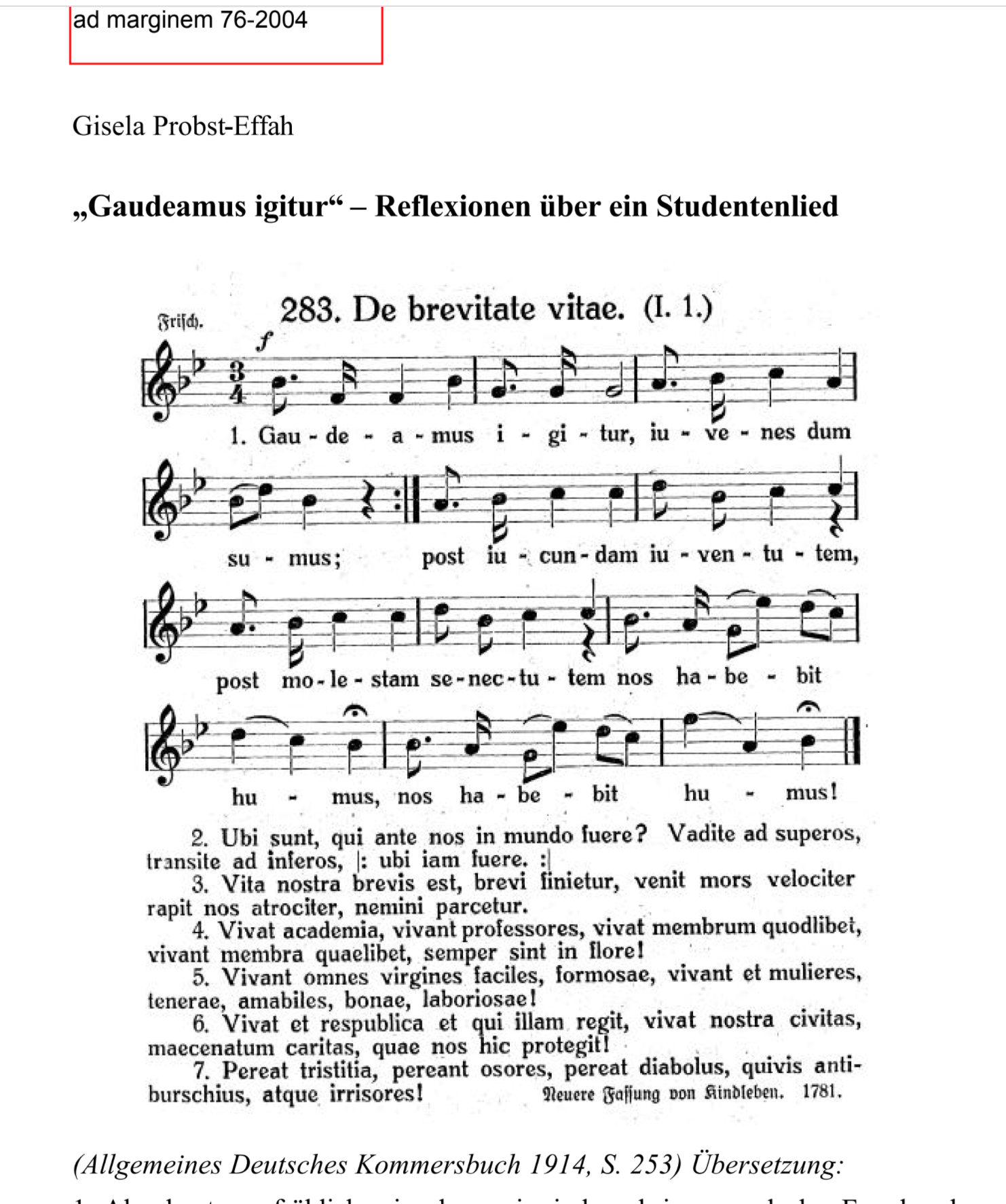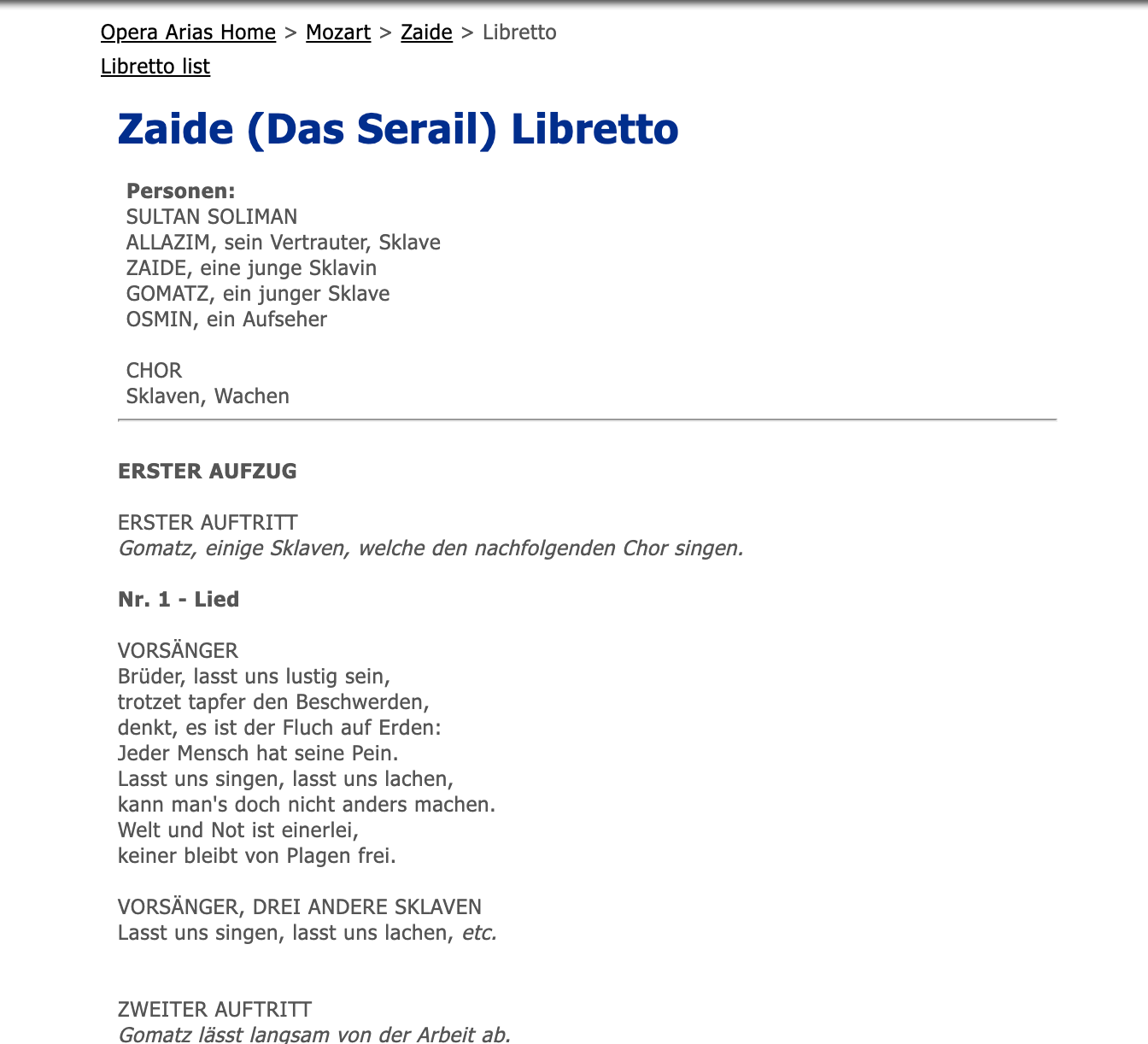Paper (preprint) and artistic research winter term 2020-21:
The academic anthem Gaudeamus Igitur it is still used in academic acts and it was published as the students anthem with the contemporary version lyrics in German universities of sXVIII48. The first version to consider it is from a text of 171749, later used in the version of 1781, and the text kept in the Westdeutsche Bibliothek de Marburg, beginning with the sentences: “Brüder lasst uns lustig sein, weil der Frühling währet, und der Jugend Sonnenschein…”. The first sentence however it is also present before, in the Mozart’s KV 336b (1779) partiture of the not-finished opera Zaide, 1780, where the Act.I Opening begins with the Choir of slaves singing these first lyrics on “Brüder, lasst uns lustig sein”50. With this first sentence the Choir of the slaves begins to sing in this Mozart not finished opera: it was impossible to perform it, due to the highest Opera’s social criticism. It could never be performed during the life of Mozart, being only possible to perform it in the Frankfurt am Main premiere of 1886.
Source: Nagatomo, Masami. Die Geschichte der deutschen Studentenlieder von Carmina Burana bis zum Gaudeamus igitur
“Brüder lasst uns lustig sein,
weil der Frühling währet
und der Jugend Sonnenschein
unser Laub verkläret”;
Gunther, 1717.
50 (https://www.alle-noten.de/out/media/pdf/EF1715.pdf
51
The Choir of slaves lyrics are the same being present in the Lieder version of Gaudeamus Igitur from Johann Christian Günther 1717 and from the more recent German versions, present in the Akademisches Liederbuch. Dessau und Leipzig, 1782. [Verf.: August Christian Heinrich Niemann] and 1781. Mozart phrase and opera Zaide 1780 KW344 Opening Choir it is not usually considered when analysing the Gaudeamus igitur.
Behind the Gaudeamus Igitur, as being set before, there is the philosopher text: De Brevitate Vitae of Seneca, containing also the ethical commitment of the Hipocrates Oath applying to Doctors, being them understood as those able to set Doxa due to the dentological implications and knowledge achieved, after the statement from Seneca De Brevitate Vitae: Ars longa. Vita Brevis, translation from Greek Hippocratic Oath.
In Academia being Doctor a neutral term in Latin, as German, not masculin or femenin would be needed in the further present writing, as for it is academic term, not gendered: Doctor/a would become not a neutral nominative.
Beethoven also wrote about it, in the "Ars longa, vita brevis”, Fa mayor, WoO 192. 1825. Canon.
This statement from Seneca and Hipocrates it is different to the Carpe Diem. It gives to human being the resassurance that even if living under this perishing painful world undertaking the path of knowledge and study it will remain, at least knowledge. This is also coming from the tradition on estoicism to cope with the hard times present in the Seneca and Hipocrates thoughts from the antiquity.
In Paris, BNF, there is the original recording of De Brevitate Vitae being later referred in the academic anthem, however, due to pandemic times it is now impossible to consult. In the translation of De Brevitate Vitae in Latin, there is also present the concept from Aristoteles on the human being as zoon politikon, zoon being not exactly the same as animal in Greek or Latin, closer to bare life: zoé, the polis requiring human and viceversa to be human. -Terms later presented in the Arendt's theory-.
In the Lied of the Opening Slaves Choir Mozart Zaide, the fist sentence is a reference to this Gaudemus Igitur, as being the same, but, under the tradition of Choir and Canon singing with variation on a same topic-being the hypothesis in this case the statement Ars longa.Vita Brevis, behind the Gaudemus Igitur-, the slaves sing under the social criticism of Mozart at this time, with the form of Singspiel that led to the impossibility to finish and perform this opera, until being presented in Frankfurt am Main, almost 100 years later.
Libretto Zaide Opera. Opening Slaves' Choir KW344.
Nr. 1 - Lied
VORSÄNGER
Brüder, lasst uns lustig sein,
trotzet tapfer den Beschwerden,
denkt, es ist der Fluch auf Erden:
Jeder Mensch hat seine Pein.
Lasst uns singen, lasst uns lachen,
kann man's doch nicht anders machen.
Welt und Not ist einerlei,
keiner bleibt von Plagen frei.
VORSÄNGER, DREI ANDERE SKLAVEN
Lasst uns singen, lasst uns lachen, etc.
ZWEITER AUFTRITT
Gomatz lässt langsam von der Arbeit ab.
VORSÄNGER
Brüder, lasst uns lustig sein,
trotzet tapfer den Beschwerden,
denkt, es ist der Fluch auf Erden:
Jeder Mensch hat seine Pein.
Lasst uns singen, lasst uns lachen,
kann man's doch nicht anders machen.
Welt und Not ist einerlei,
keiner bleibt von Plagen frei.
VORSÄNGER, DREI ANDERE SKLAVEN
Lasst uns singen, lasst uns lachen, etc.
ZWEITER AUFTRITT
Gomatz lässt langsam von der Arbeit ab.
References:




Thanks to the collaboration of the researchers team, winter 2020-21.
Music:
Mozart. Zaide, K. 344, Act I: Act I: Chorus: Bruder, lasst uns lustig sein
Beethoven. Canon for 3 “Ars longa, vita brevis”, WoO 192